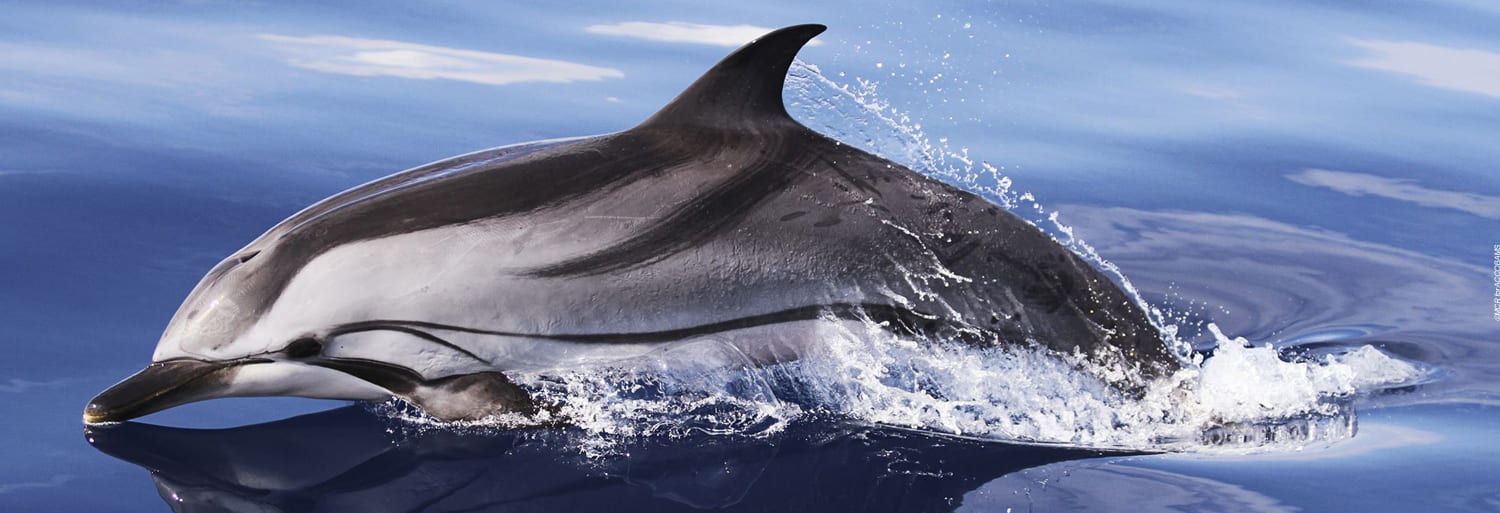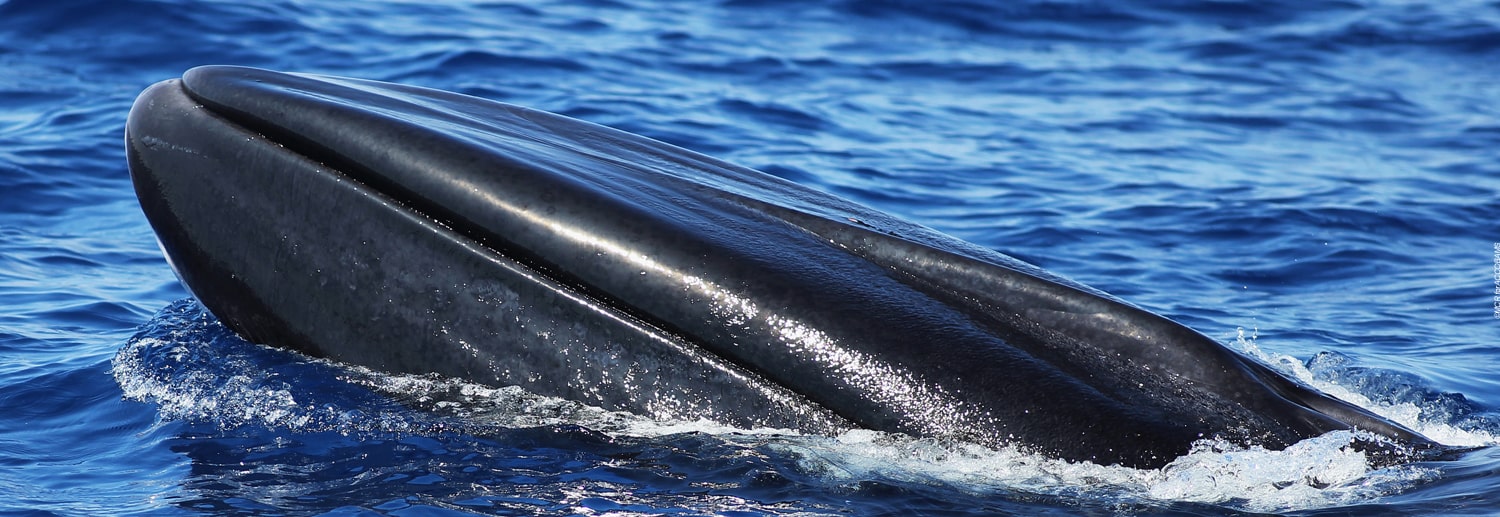ASI : first megafauna survey offshore Libya , a blog by from Almokhtar SAIED, ACCOBAMS National Focal Point for Libya, on board of the Research Vessel the Song of the Whale
“In 2007, Song of the Whale visited Tripoli as part of a previous survey investigating the presence of sperm whales in the eastern basin. As part of the outreach and awareness programme, I visited the boat and met the crew. Together with my colleagues, I helped arrange the stay of the boat in Libya and assisted with a number of visits by dignitaries, members of the public and school groups. I even had the chance to show the team some of Libya’s historical monuments including Leptus Magna. This experience inspired me and gave me hope that one day I could visit Song of the Whale as a member of the research team.
After eleven years, Song of the Whale has returned to the Eastern Basin and along with my two colleagues from EGA, Salih Diryag and Mustafa Almuntasiri, I have finally had the opportunity to help survey our Libyan waters. It is a dream come true for all of us to be part of ACCOBAMS’ historic research programme, particularly as many regions in the east have historically received less survey effort. Although our team at EGA have compiled several years of data describing the marine mammals that have stranded along our coastline, understanding the distribution of whales and dolphins at sea is essential to provide them with adequate protection. This is particularly true in the distant offshore waters where our knowledge is most limited, despite the presence of a busy shipping corridor formed by large vessels passing through the Mediterranean Sea at high speeds. We hope that the ACCOBAMS Survey Initiative will provide the baseline data required to protect our local populations of cetaceans.
Although the trip started from Crete in quite rough conditions, the sea soon settled down as we headed south to Libyan waters. We soon found a rhythm to life on board Song of the Whale and enjoyed working alongside the rest of the Song of the Whale team. Over the course of the following two weeks at sea, we saw striped dolphins and bottlenose dolphins. We additionally heard the loud clicks of sperm whales near the Herodotus Seamount; for many of us on board, this was the first time we had heard the loudest creature on the planet. Although we were not able to hear the ultrasonic clicks of beaked whales, we were able to see their characteristic forms on the survey computers using the specialised software on board. Again, a first for many of us on board. Unfortunately, we also encountered a juvenile loggerhead turtle entangled in a fish aggregating device left drifting on the high seas. Despite the turtle’s flippers being tightly bound together by a plastic rope, we were able to cut it free and release it back in to the wild. We hope it is recovering well.
After two weeks at sea, mostly out of sight of land, we were pleased to see the coastline appearing of Tunisia on the horizon early on the last morning. After negotiating the numerous fish farms on the approach to Monastir, we tie up in the marina and our greeted by our colleagues from Association Notre Grand Bleu. Our survey has incorporated 1500 nautical miles of survey effort and we feel proud to have contributed to such an important project. In the process, we have also learnt many things and made new friends. We are hoping we will be able to continue using the research techniques we have learnt on board in our own future work. We would like to extend our thanks to ACCOBAMS, the Song of the Whale team and Association Notre Grand Bleu and hope to be involved in more successful collaborative projects such as this in the future.”
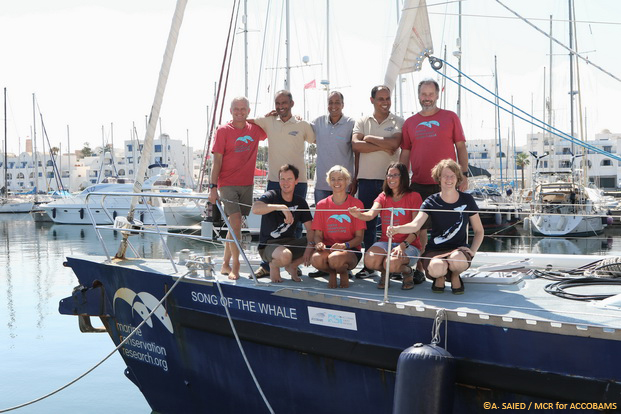
1500 miles after departing from Crete: The research team arrive in Monastir, Tunisia, after successfully completing surveying the waters of Libya as part of the ACCOBAMS Survey Initiative.
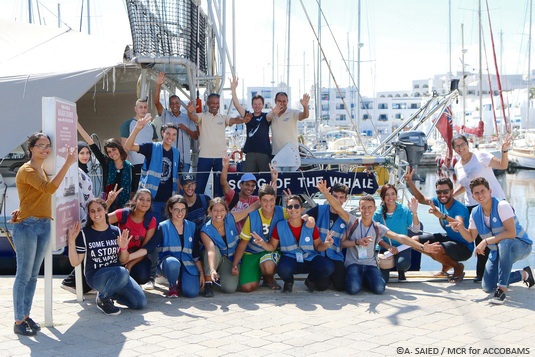
Manel Ben Ismail with a group of very keen students from Association Notre Grand Bleu visiting Song of the Whale in Monastir.
We hope many of them will go on to become champions of the marine environment!
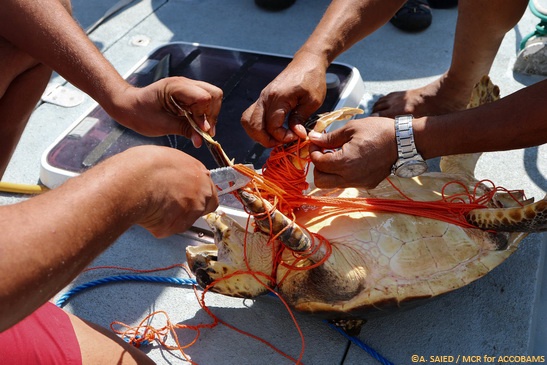
Almokhtar Saied, Salih Diryag and Mustafa Almuntasiri cut a loggerhead turtle free from the plastic rope attached to a fish aggregation device.
We started to see many of these fishing devices to the northwest of our survey area.
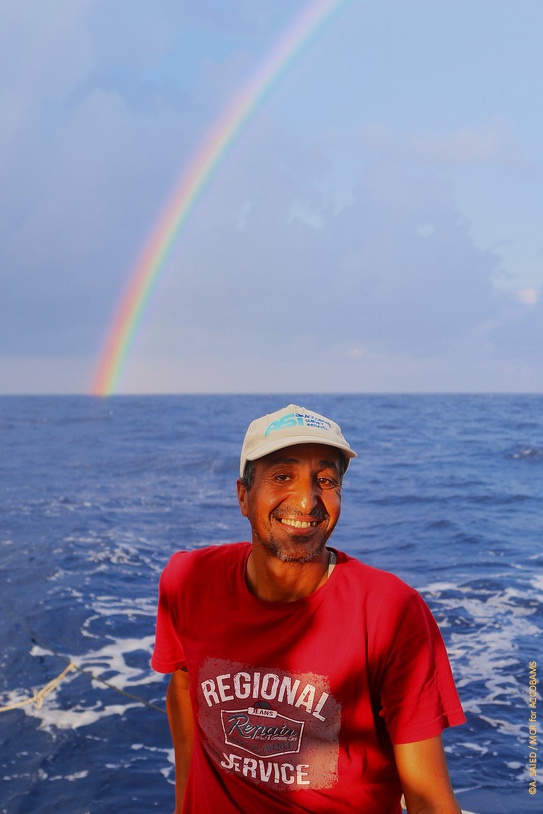
Salih Diryaq (Environment General Authority) on the aft deck of Song of the Whale, pleased the rain has passed behind us.
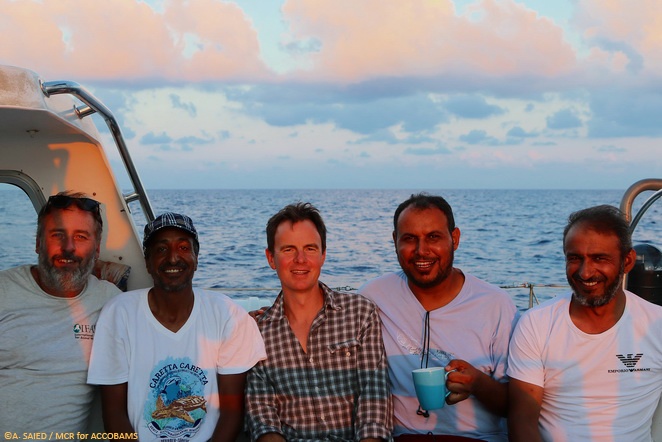
From left to right, Richard McLanaghan, Salih Diryag, Oliver Boisseau, Mustafa Almuntasiri
and Almokhtar Saied enjoy a cup of tea at the end of the working day as the sun sets over the Libyan Sea.

